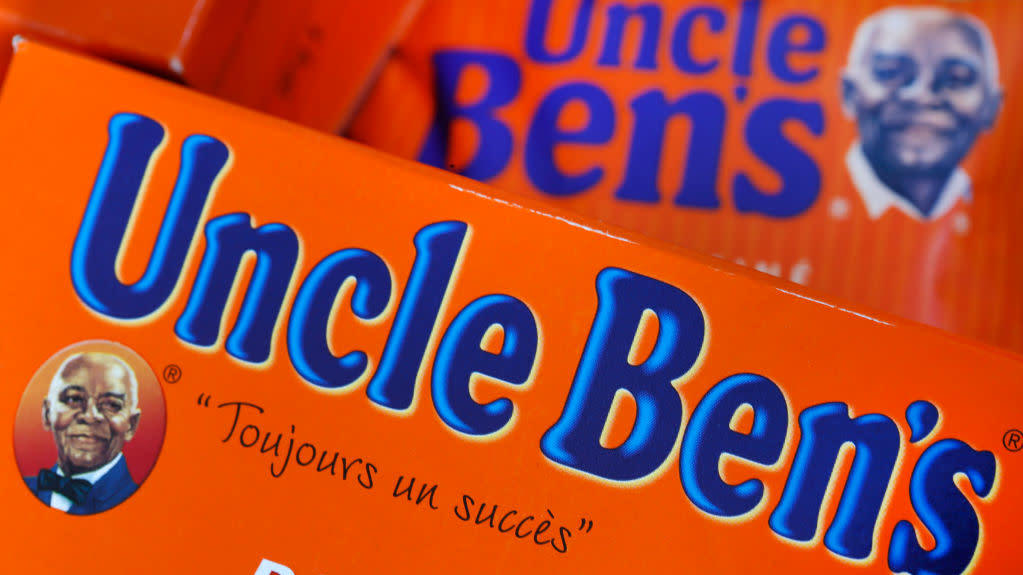Who Was Uncle Ben Anyway?
Here's a fun fact for you all: if Uncle Ben loses his job this year, it would not be for the first time. The bow-tied rice mascot was previously canceled back in 1971 and, after a 12-year absence, was reinstated to boxes of his namesake rice brand in 1983. In 2007, he was promoted, via an ad campaign, to chairman of the board, a position from which he dispensed "grains of wisdom." As Emma Balter notes in a piece in the Houston Chronicle, "He still kept the honorific 'uncle,' though, which is a disparaging way to refer to Black men, in lieu of 'Mr.' (and 'aunt' for 'Mrs.' or 'Ms./Miss')."
The brand was originally known as Converted Rice. It was given the snappier name Uncle Ben's in 1946, four years after the candy magnate Forrest Mars acquired a stake in the patent for parboiled rice. Around the same time, it adopted the Black man with the bowtie as its figurehead.
In a wide-ranging and fascinating essay in The Bitter Southerner, Shane Mitchell examines the history of rice in the South Carolina Lowcountry, her own family's heritage, and the legacy of Uncle Ben's. She writes,
Uncle Ben may never have existed, although Mars Food corporate lore references a black rice farmer, last name unknown, in Beaumont, Texas, as his inspiration. A waiter named Frank Brown, however, who worked at the Tavern Club in Chicago, did consent to have his portrait painted for $500. The restaurant was a favorite haunt for the agency reps who created the first advertising campaign, featuring his image, which appeared in Life Magazine on October 27, 1947. Tag line? "The sunny-colored rice that cooks white." In six years, the brand became the top-selling packaged long-grain rice in the country.
Balter takes a look at the history of actual Black farmers in Texas in the 1940s and concludes that Uncle Ben, had he existed, would not have been the successful entrepreneur the Mars Food marketing team has made him out to be. It's more likely he would have been the son of sharecroppers, and possibly still a sharecropper himself. His grandparents almost definitely would have been born into slavery.
It was, in fact, West Africans who were brought to America and enslaved who began planting rice here, Mitchell notes, using techniques they learned in their homelands. But it was the white plantation-owners who made the money and prospered without doing any of the backbreaking labor.
The Carolina rice economy essentially collapsed after the Civil War and slavery, but Balter notes that in Texas, rice and other crops, notably sugar, relied on unpaid labor in the form of the convict-leasing program that took advantage of a loophole in the Thirteenth Amendment that states that involuntary servitude is acceptable as punishment for a crime.
"The story behind how rice, sugar and many other commodities became so successful in the U.S. is relatively well-documented," Balter concludes. "It's difficult to divorce that history from the multimillion dollar brands that sit on our grocery shelves today."
It would seem that if Mars bothered to consider any of this history at all (a "Rice History" section on its website ignores slavery altogether), it would be hard-pressed to defend a decision to continue to use Uncle Ben as a mascot. In a statement on its homepage and social media, the brand has pledged to "help put an end to racial injustices" by adjusting its "visual identity" and listening to Black consumers and associates, but it's all still a work in progress. It will be interesting to see what it decides to do or if it will let history slide by, just like it did back in 1983.
